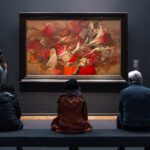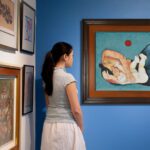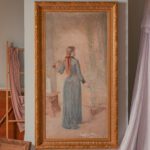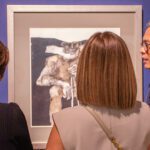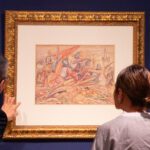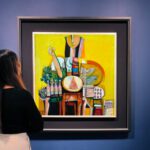
Eulogio Balan Rodriguez, the ’Monuments Man’ of the Philippines, and his Fight for the Nation’s Cultural Heritage
- 21 February 2021
In the midst of all the manuscripts, dictionaries, encyclopedias, and books that once lay in the National Library, worked a homegrown ‘boy-wonder’— a bright young man named Eulogio Balan Rodriguez, Sr., who would go on to spend most of his professional career as a caretaker and fierce defender of our country’s literary wealth— the very building blocks upon which the Philippines’ culture, history, and society have been built.
Even at an early age, Eulogio Balan Rodriguez, had a great love for historical narratives and local mythology that he found between the pages of books. He was especially enthralled by literary works about our then young nation.
By the Commonwealth Period, Rodriguez had worked his way up the ranks— eventually earning the highly coveted spot of Director of the National Library. It was at this time that he had the pleasure of attending the Constitutional Convention, as the National Library was tasked to print, bind, and distribute copies of the ratified Constitution.
As fate would have it, an original signed copy— which includes the signatures of most of the delegates including three future Philippine presidents, Laurel, Quirino, and Roxas, as well as statesman Claro M. Recto, who was the constitution’s main author, presiding over the entire convention and its delegates— was gifted to Rodriguez. Since his death in 1949, his private collection had remained tucked away, hidden from the public. It is only now, over half a century since his passing, that the literary wonders he guarded are being brought back to light.
The 1935 Constitution
One may wonder— would a yellowing publication such as this even hold value in the modern age? The answer is a most definite ‘yes.’
The 1935 Constitution was written during a tumultuous period for the country. It was the liminal ten-year period before independence would be granted unconditionally by the United States. Liberty was nearly within grasp. The agonizing wait grew even longer as this transition period was interrupted by the Second World War.
Nevertheless, this Constitution tangibly represented our hope for a Philippines run by Filipinos— fully independent from Western powers.
Today, on the anniversary of the People Power Revolution of 1986, we remember what has been sacrificed in the past for the freedom we enjoy today.
World War II and the Mission to Save the Library
When the Japanese invaded Manila, the patriotic Rodriguez made an unexpected— not to mention controversial— decision: he agreed to remain in his position as Director during the Occupation. There were those who were quick to accuse him of treason; but little did they know that Rodriguez had something else planned under his sleeve.
With Manila declared an Open City, there were hardly any safe spaces left for Filipinos. The country was a battle zone. Many lives, including three of Rodriguez’ six children, were lost to the carnage. Still, Rodriguez soldiered on, firm in his resolve to protect the irreplaceable artifacts housed inside the National Library.
At night, he would sneakily open the library’s facilities for the use of the rebellion. Under the darkness, they would huddle together in order to create and print the ‘Tambuli,’ a weekly publication distributed to Manila’s residences in secret. ’Tambuli’ reported about the news and events that the Japanese would rather the public not know about. It played a vital role in dispensing information during those troubled times. Had Rodriguez been caught, he likely would have been executed.
Some time during the war, Rodriguez got ill. For an extended period, he was incapacitated and bedridden at the San Lazaro Hospital— leaving the intellectual fortress without its protector.
He expressed no concern for his own well-being in a letter to his superior, Maximo M. Kalaw, the former Secretary of Public Instruction, pleading that the Filipino people’s cathedral of knowledge be guarded— lest it fall into the hands of the enemy and pillaged.
After much back and forth and the permission of the director sought, Rodriguez, along with American anthropologist H. Otley Beyer, set off to retrieve what they could from the National Library for safekeeping. The success of this mission assured the survival of the country‘s historic and intellectual legacy.
This is the story of an unsung hero in Philippine history. Rodriguez was more than a mere keeper of books; he was a staunch nationalist who fought tooth and nail to protect the nation’s heart and soul— not for his own benefit but for future generations to share in the wealth of knowledge he had traversed, aisle after aisle.
Eulogio Balan Rodriguez, Sr’s signed and original personal copy of the 1935 Constitution will be going to auction at the ‘Important Philippine Art & Furniture’ sale on Saturday, 13 March 2021. You can view the full catalogue and register to bid here.








